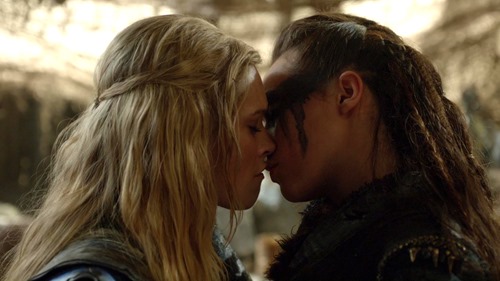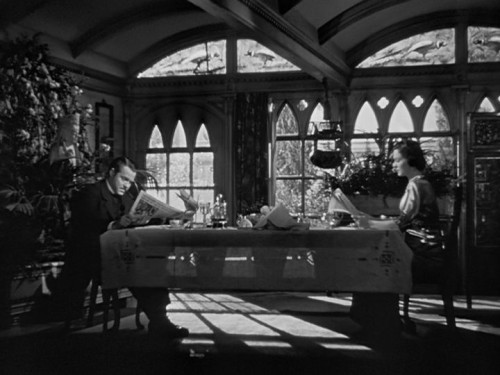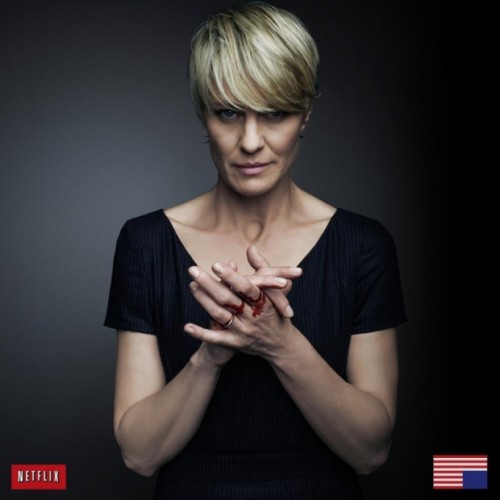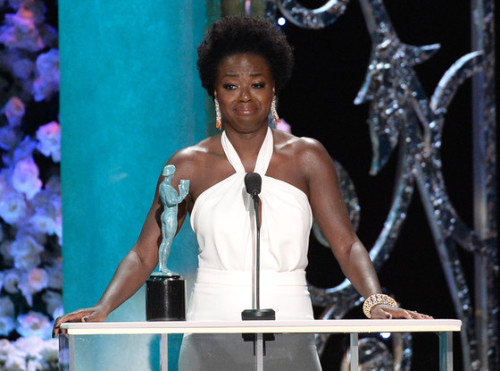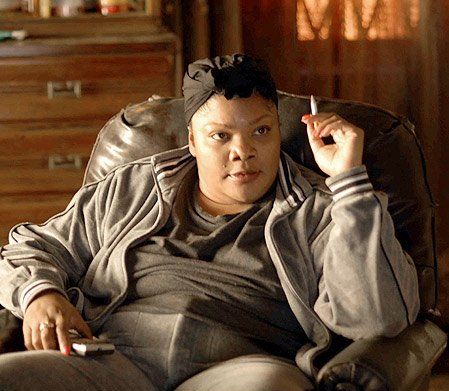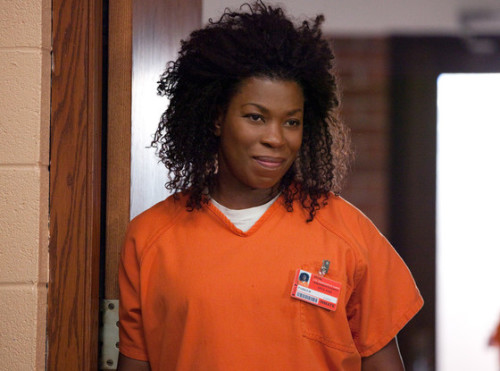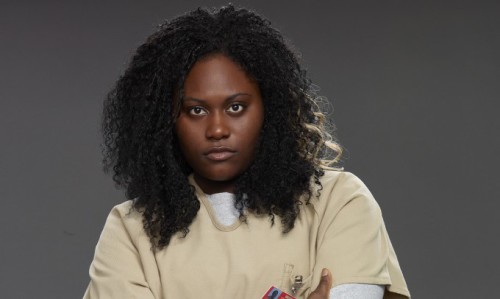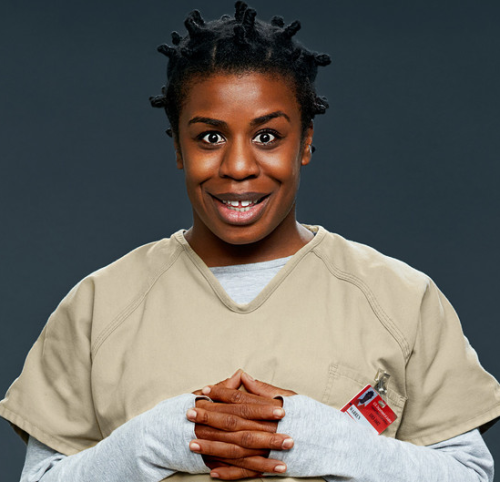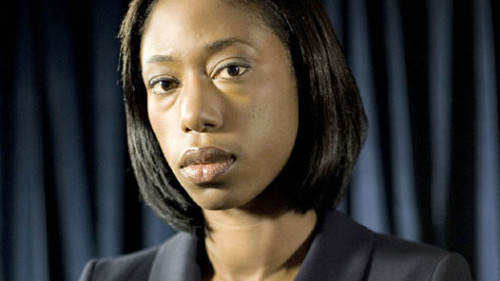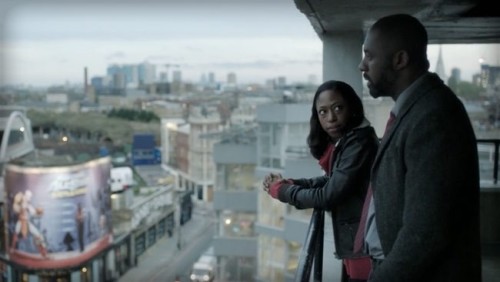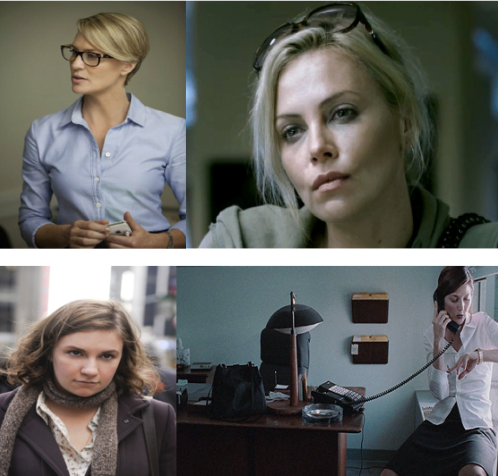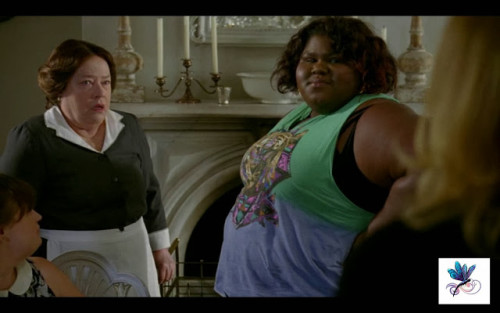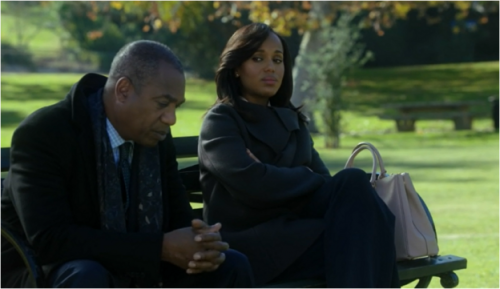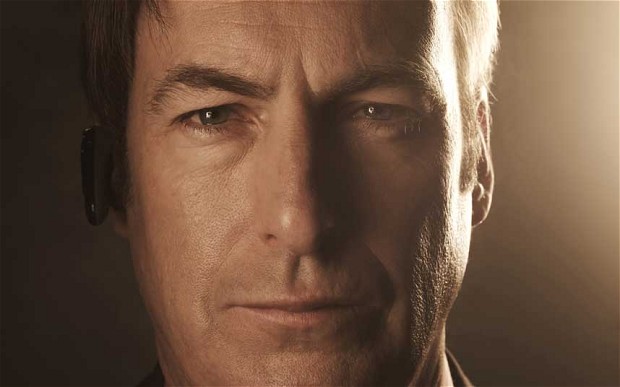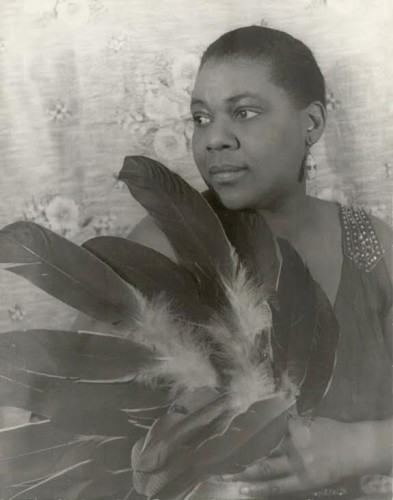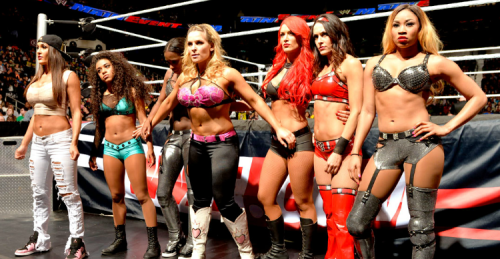Written by Katherine Murray.
Bisexual protagonists, scenes that pass the Bechdel Test, women making choices that drive the action of the story – I’m still the only person who watches The 100, but, boy, do I enjoy it when I do.
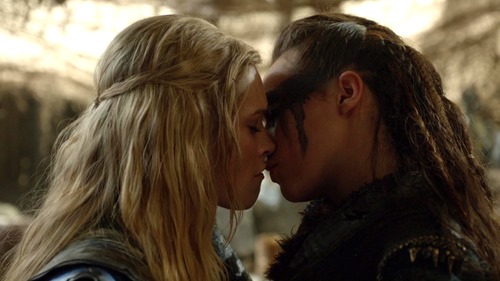
Last year, I wrote about the first season of The 100, a dystopian YA science fiction series on The CW, based on a dystopian YA science fiction novel of the same name. While the first few episodes were laughably terrible, the series later took a sharp (and dark) turn toward being kind of good. The second season of The 100, which airs the first half of its two-part finale this week, is also laughably terrible in places, but also kind of surprisingly good.
One of the good surprises happened last week, when the series hero, Clarke, turned out to be bisexual in a low-key, fairly believable way, that didn’t involve any hand-wringing about her sexual identity. The major story line this season has been that Clarke’s group, the Sky People, are trying to forge an alliance with the Grounders – a group of clans native to the planet the Sky People have landed on. The Grounders’ leader, Lexa, is a girl Clarke’s age who’s also been pushed into a position of responsibility, and the two of them grow closer as the season progresses, because no one else understands the pressure of making life and death decisions for thousands of people, or of sacrificing those you love for the sake of the greater good. There’s tension between them, because they have different ideas about what it means to be a leader, and Clarke’s character arc this season is partly about whether she’s going to end up as cold as Lexa.
That’s already unusual for a network TV show, in that the story is about a serious philosophical difference between two female characters who talk to each other about it, and make life and death decisions based on their discussion, but it’s also unusual because the showrunners decided to let them kiss, and didn’t make a whole big deal about it.
It turns out that Lexa doesn’t make Clarke a cold, hard-hearted leader after all – the opposite happens, and Clarke gets Lexa to warm up a little – at least enough to admit that there’s a place in her hard heart for Clarke. And, rather than having her push Lexa away, or say, “I’m not gay – god, what if I’m gay?!” it turns out that Clarke’s been quietly bisexual all along, and it never came up before because it’s not all that noteworthy a thing. It’s exactly the same as if she were kissing a guy.
In other words, the fact that it’s not a big deal is what makes it a really big deal.
As Allyson Johnson writes in The Mary Sue: “It’s not pandering, or queer-baiting; it’s simply a part of [Clarke’s] characterization that’s played as if it’s totally and beautifully normal.” Series creator and executive producer, Jason Rothenberg, also went on Twitter to explain that people don’t get freaked out about bisexuals in the future world of The 100 and that “if Clarke’s attracted to someone, gender isn’t a factor. Some things improve post-apocalypse.”
We’ve already had bisexual characters on science fiction shows – Torchwood is notable for making bisexuality as part of its mission statement – but there’s still something surprising and refreshing about the easy-going way that The 100 made this happen. It’s a step forward in the portrayal of LGBT people in general, but of Bi people especially. That Clarke’s comfortable with who she is – that she already knew this about herself, and the only thing that’s new is that we’re learning it about her; that she doesn’t turn into a lesbian as soon as she kisses a girl – that’s a big deal.
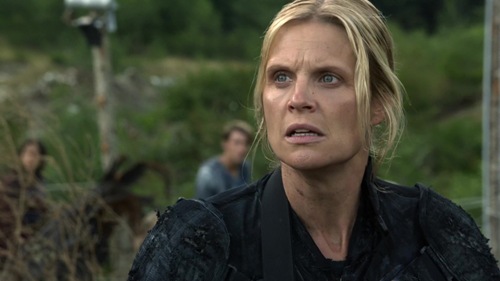
Another pleasant surprise in the second season is how willing The 100 is to cast women in roles where they just need some generic person. Almost every time – if not every time – groups of random, redshirt, background characters convene, some of them – and some of the ones with speaking parts – are women. The show also fills a lot of secondary roles with women – the generically menacing doctor who works for this season’s enemy, the Mountain Men, is a woman; the super hard core Grounder who distrusts the Sky People and causes tension is a woman – but I was most impressed by Major Byrne.
Major Byrne is a cookie-cutter character who exists just to create conflict among the Sky People now that the conflict-creators from last year have been rehabilitated. The Major is the hard-ass, shoot first and ask questions later, “they are the enemy,” letter of the law, peace-hating, harsh justice head of security who keeps telling the other characters that they’re screwing up by being too lenient and soft-hearted. It’s the kind of role that casting directors usually fill with a male actor, because that’s the person we all picture in our heads when we think of this archetype. The reason I’m impressed that Major Byrne turned out to be a woman is that it shows that someone, somewhere along the line, thought past their knee-jerk reactions and made a deliberate choice about casting the role – and I think that’s indicative of the deliberate choices that The 100 makes in casting female actors in general.
That doesn’t mean that Major Byrne was more than a military stereotype, or that the doctor mentioned above was more than generically evil, or that female redshirts are any more useful than male redshirts as characters – it just means that rather than defaulting to “male unless otherwise specified” it seems like The 100 makes a conscious effort to present a world where both men and women are present and involved in what’s happening.
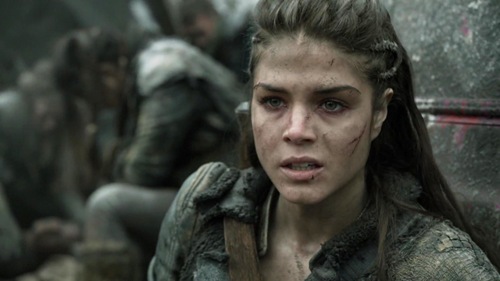
The third good surprise, and the last one I’ll talk about – although I could mention the show’s humour, and its interesting grimdark twists – is that the writers seem to understand that there was a problem with Octavia in season one. They haven’t figured out the right way to fix it yet, but they’re trying, and I appreciate that.
If you recall, Octavia is the character who began the first season as a sassy, hypersexualized rebel, and then was rebooted as The Kindest Girl Who Ever Lived. In both incarnations, the main point of Octavia was how other people felt about her, and she constantly fell into danger and had to be rescued by other characters.
Season two reboots Octavia again as kind and rebellious, resourceful, independent, and brave. Her character arc this season is that she spends less time with her Grounder boyfriend, and more time training to be a warrior in the Grounder army, after proving herself to the really hard core Grounder, Indra.
There are some ooky colonial elements to Octavia 3.0’s story, and I don’t at all buy that she’s now an honorary Grounder because she started braiding her hair and lost a fist fight in a really spectacular way. She also looks hilarious when she tries to join them in a tribal yell, and she uses literally the worst strategy ever when she tries to take hostages during an early episode. Like, it’s really so bad that I have to believe Indra let her walk away with a hostage because she just didn’t like the guy Octavia was holding hostage very much.
That said, I appreciate that the show is trying to turn Octavia into a person rather than a chess piece in a game that other characters are playing. Right now, the character’s exhibiting a pretty superficial, and unrealistic form of girl power (“Let’s just make her awesome at everything!”), but it’s an improvement over the days when she used to trip over her feet and get knocked unconscious in the woods. If the producers were going to learn any lessons from season one, and latch onto anything as being the core of their show, I think trying to build strong female characters is a fine thing to latch onto – even if they haven’t quite got it right with Octavia.
The 100, like Battlestar Galactica before it, is still remarkable for having women make so many choices that drive the story, and I think that, once they find a way for Octavia’s choices to matter, things will finally slide into place.
And I haven’t even told you about the episode where the A-plot is that the characters go to the zoo and get chased by a monkey!
If you live in the United States, The CW airs The 100 on Wednesday nights. If you live in Canada, you can catch it on Netflix the following morning. Please watch it – I think it deserves to exist.
Katherine Murray is a Toronto-based writer who yells about movies and TV on her blog.
